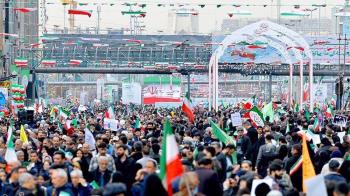Alwaght- UN special rapporteur on human rights in the Palestinian territories urged on Wednesday the world community to hold the Israeli regime accountable for its “illegal” land grab policies in the occupied Palestinian territories and take decisive action to end the “longest occupation in the modern world.”
Michael Lynk told the General Assembly that “the status quo of Israel’s ‘occu-annexation’ is endlessly sustainable without decisive international intervention.”
The UN expert said that “the international community has issued countless resolutions and declarations critical of the never-ending Israeli occupation,” but “the time has long past to match these criticisms with effective consequences.”
“Accountability is the key to opening the titanium cage that is the permanent occupation,” he said.
Lynk lamented that the Israeli occupation has been characterized by “a strong sense of impunity” by the Tel Aviv regime.
“This occupation will not die of old age,” he stated.
Lynk said that the international community should devise a list of effective countermeasures which would be “appropriate and proportional” to the circumstances.
The world community, he added, “should apply and escalate the range of its targeted countermeasures until compliance had been achieved.”
“Palestinians, along with Israelis of conscience, have been asking repeatedly for the international community to act decisively in support of international law to compel Israel to end the occupation and enable Palestinian self-determination. We can’t afford to ignore their call,” the expert said.
He further called for an international ban on all products made in Israeli settlements built on occupied land, as a step towards ending the regime’s 52-year-old “illegal occupation.”
The international community should also issue “a clarion call to the United Nations” to complete and release a database “on businesses engaged in activities related to the illegal settlements,” he said.
The UN Human Rights Council has repeatedly delayed the release of a report about companies doing business in Israeli settlements, which was originally to be published in 2017.
The UNHRC first voted in 2016 for the creation of the database, which is intended to list all companies doing business with Israelis situated in the West Bank, East Jerusalem al-Quds and the Golan Heights, but its release has since been repeatedly delayed.



























